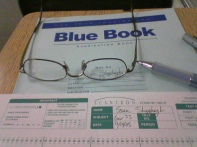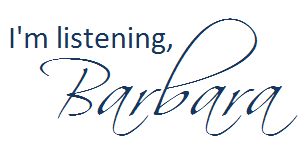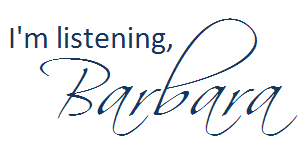GSU Is…
What have you learned about yourself and GSU now that the semester is almost over?
Creating Our FYE 1220 Final Exam
 For our Final Exam in FYE 1220, Mackenzie and I would like your help. Let’s develop a list of what you consider to be the most important things you’ve learned, and then turn that list into multiple choice questions. You’ll find out in class which categories you’ll need to write questions for.
For our Final Exam in FYE 1220, Mackenzie and I would like your help. Let’s develop a list of what you consider to be the most important things you’ve learned, and then turn that list into multiple choice questions. You’ll find out in class which categories you’ll need to write questions for.
Your questions are due before class on Monday, November 30. This assignment counts as part of your participation points in FYE 1220.
Start Writing Questions (clicking this link will bring you to the page where you will enter your questions and answers).
Photo Credit: http://www.flickr.com/photos/oberazzi/318947873/
How to Study for Final Exams
 Final exams are approaching on college campuses around the world. Finals can be stressful, even for the most prepared students. Here are some tips to help you succeed:
Final exams are approaching on college campuses around the world. Finals can be stressful, even for the most prepared students. Here are some tips to help you succeed:
Preparing for the Final
- Find out what your entire final exam schedule is so that you’ll know how many finals you will have on each day.
- Prepare a written schedule for yourself indicating when you will study for each test. Leave some time in your schedule for exercise and relaxation, too.
- If the professor offers a study guide, use it.
- If the professor offers a review session for the exam, go to it.
- Know if the final is comprehensive (covering everything since the beginning of the semester or quarter).
- Find out what kind of exam it will be. You’d study differently for a multiple-choice (Scantron) final than an essay (blue book) one.
- If the final will be taken online, find out if you have to go to a specific computer lab on campus at a specific time, or if you’ll be allowed to take the final on your own computer. Also find out how many chances you will have to take the final. Assume it’s just one chance unless you hear differently from the professor.
- If you have your previous exams available, scour the exams for things that you think will be on the final. Flag your notes by highlighting or using Post-It notes.
- Don’t pull an all-nighter. (Though some people are successful with studying all night and then taking a test with no sleep, I wouldn’t recommend you try it for the first time on a final exam.)
- Calculate your grades in the class. Determine what score you will need to get the grade you’re hoping for in the class. You may discover that you can’t possibly get an A, no matter how well you do on the final, but to get a B, you only need to get a few questions right.
- If you’re an auditory learner, record yourself reading your notes aloud, then play the recording back several times. (You can use the free online service Utterli for this; simply register with Utterli and then call your assigned phone number with your cell phone to start the recording.)
- If the exam is an open-book exam, this does not mean that you don’t have to study at all. In fact, one of the most challenging exams I ever took as an undergrad was an open-book essay exam.
- Consider creating a detailed Final Exam Battle Plan.
On the Day of the Final
- Eat a meal and drink water.
- Don’t overdo it with the caffeine.
- Know what to bring with you to the final. Do you need a blue book? A Scantron? (And if you need a Scantron, which kind do you need?) A pencil? A pen?
- Are food and drinks allowed in the classroom where your final will be? Sometimes, the rules are different for exam days than other days.
- Even if you don’t usually wear a watch, take one with you to the final. It’s unlikely you will be able to look at your cell phone during the final.
During the Final
- For a paper-based exam, read through the entire final exam before you start answering any questions at all. This way, you will know what you’re facing.
- If the final is an online exam, find out if you can revisit questions, or if after you click past a question you cannot go back to it again.
- If you’re using a Scantron and you skip a question to finish later, make sure you’re answering your questions next to the correct answers. (When I took my GRE to get into grad school, I skipped a question on the first page of the booklet, but never skipped a number on the Scantron. When I realized it, I only had 10 minutes to go back and put the answers with the correct questions. Talk about stress!)
- Keep a close eye on the time you have allotted.
- Some students benefit from answering the most difficult questions first, while others do better completing all the easier ones. Do what works for you.
After the Final
- Do not share with other students what was on the final exam. In most universities, this is a violation of the honor code.
Now it’s your turn: What final exam tips do you have to share? Please let us know through your comments below.
Photo Credit: http://flickr.com/photos/shaghaghi/73645535/
Social Media Song: Crazy Little Thing The Web
A fun little take on social media, done to the tune of Crazy Little Thing Called Love:
Cheap Dates
 When I was in college, I lived on a really tight budget. Things aren’t much different for many of today’s college students.
When I was in college, I lived on a really tight budget. Things aren’t much different for many of today’s college students.
Trying to come up with something fun to do on a date, something that doesn’t cost a lot of money, can be a real challenge.
My favorite “cheap date” in college? A stop for ice cream, followed by a walk through Auburn University’s Arboretum. I’ve been married to my college sweetheart for 24 years, so cheap dates can have long-lasting impact!
What are some of your favorite “cheap dates”? Please share your ideas by providing a comment. Thanks!
Watch Out for Digital Dirt
 When you’re preparing for a job (or internship) search, it’s time to be sure that you don’t have any “digital dirt” that a potential employer may uncover.
When you’re preparing for a job (or internship) search, it’s time to be sure that you don’t have any “digital dirt” that a potential employer may uncover.
Imagine you’re in a job interview right now. How would you answer this question? “After our interview today, I am going to look you up online. How do you think my impression of you will change after I do this?”
Think about what’s visible in your Facebook profile, MySpace page, your blog, Flickr photos, LinkedIn profile and anywhere else that you’ve posted info about yourself. Check to see if others have tagged you in photos. Even if you’ve made your info “private,” it’s still possible that the information is accessible. (Even if a web page is taken down, you may still get to it through the Way Back Machine if you know when it was accessible.)
A discussion on this topic at PR OpenMic brought several things to consider:
” We google/facebook/myspace everyone we hire, and it’s pretty much standard practice out in the trenches.” — Michael Dolan
“I have, in the past, Googled and Facebooked my students before each new semester begins. The stuff I’ve found. So, I copy the photos and, when classes start, put the photos up on the large screen in class as I call roll. My point to them is, “If I can find it, your potential future internships and employers can find it, too.” Freaks them out, but certainly makes the point. Again, only rarely, but still … the stuff I’ve found… yikes!” — Robert French
“A good point a new PR professional brought up when speaking to one of my classes is blocking your friends list from public view. Who you associate with can be digital dirt sometimes.” — Beth Evans
Let me close with a profound thought by a PR practitioner in Washington, DC :
“Just ask yourself: Would they trust their organization’s reputation to someone who can’t keep his or her own intact?” — Felipe Benitez
Just some food for thought.
[Cross-posted from my Public Relations Matters blog.]
Podcasts 101
What is a podcast? Put simply, it’s a recording — either audio or video — that you can play when it’s convenient for you. Podcasts exist on a wide variety of topics, from social media, to sports, to comedy, to news . . . and everything inbetween.
I listen to podcasts during my commute from Savannah to Statesboro, and also when I am walking. Some people prefer to listen to podcasts on their computers; my preference is listening to them on my Palm Pre or iPod. Some of my favorite podcasts are: For Immediate Release, Inside PR, The Creative Career, Media Bullseye Radio Roundtable, Trafcom News, Marketing Over Coffee, and Wait Wait Don’t Tell Me.
Here’s a short video on how to subscribe to and download podcasts using iTunes.
If you’re not an iTunes person, you may want to visit Podcast Alley, where you can find thousands more podcasts. You can listen to the podcasts directly from the website.
As a reminder, your 7th required blog post for this class is about podcasts. Please respond (with a comment) to this post when you decide which podcast(s) you’ll listen to for the assignment.
Big Rocks and Other Priorities
For the deliverable for the module on Time Management (which I’d rename as Priority Management), this is what I’ll need from you:
Fall 2009 Semester at a Glance: Fill this out with every assignment, test, quiz, final, etc., that you have this semester. You can do it in Word and turn it in using GeorgiaVIEW or by hand (if and only if you write neatly) and turn it in in class. Either way, it’s due at the beginning of class . Bring a hard copy to class on Monday, October 26.
An alternate: If you already have all of your fall semester’s assignments (etc.) entered into a planner, show me what you have. You may just be able to make me a copy of what you’re already doing.
To earn all 100 points on the Time Management module, you will need to also include milestones for at least one project in each class. For example, if you have a research paper due, list your internal deadlines for when you need to finish research, write outline, complete draft, and complete final version. Without milestones for at least one project in each class, the maximum you can earn on the this module is 85. Or if you have a test to study for, indicate when you need to finish reading certain chapters, when you plan to study, etc.
10 Tips for Success on Assignments
 Midterm time has arrived on campus, and some freshmen (in many different classes) are unpleasantly surprised when they see their Early Alert grades. Why aren’t they earning Satisfactory grades? In my classes, typically it’s because they simply have failed to complete and submit the required assignments.
Midterm time has arrived on campus, and some freshmen (in many different classes) are unpleasantly surprised when they see their Early Alert grades. Why aren’t they earning Satisfactory grades? In my classes, typically it’s because they simply have failed to complete and submit the required assignments.
College expectations and assignments may be different than the ones you completed in high school. Here are several tips that may help you succeed in your assignments.
- Read the assignment thoroughly. Ensure that you understand what the instructor is looking for as a deliverable. Not sure? Ask.
- Use standard English grammar and spelling. Though abbreviations and lack of capitalization or punctuation may be fine in text messages or Twitter, they are definitely not acceptable in other written assignments. Need help with grammar? Check out Grammar Girl’s Quick and Dirty Tips for Better Writing.
- Use spell check. Don’t rely on it exclusively, but do use it.
- If there’s a minimum or maximum word or page count, write enough, but not too much.
- Consider writing a draft of your assignment for your instructor to review prior to the deadline. (Yikes — check the second definition included in the deadline link.)
- Post or turn in your assignment by the deadline. Many instructors (including me) do not accept late work. (See some views on late work at the Chronicle of Higher Education’s website.)
- Thoroughly review your course syllabus. Many instructors include a weekly schedule of discussions and assignments. Don’t be surprised if when you ask when an assignment is due, your instructor replies, “You’ll find that in the syllabus.” Check GeorgiaVIEW for due dates if they are not specified on the syllabus.
- When taking a quiz or test in GeorgiaVIEW, make sure you are aware what the rules are for using materials to help you take the test, that you know how many tries you have, and how the final score is calculated. (In many of my classes, the quizzes are “open-everything,” at least two tries are allowed, and highest score counts. But that’s just me.)
- If your instructor specifies or indicates a preference for fonts and margins, use these when writing your assignment.
Hmmm . . . that’s only nine tips. What is one addition tip you could offer to complete this top ten list? Please comment with your suggestion.

(Adapted from a post I wrote last year for my FYE 1220 class.)
Belay On! Ropes Course Blog Post
 Last week, we went to Southern Adventures at Georgia Southern’s RAC for a teambuilding activity: the low ropes challenge course.
Last week, we went to Southern Adventures at Georgia Southern’s RAC for a teambuilding activity: the low ropes challenge course.
For this week’s blog post, please address the following:
- What did you learn about yourself and your classmates at Southern Adventures?
- What did this experience have to do with our theme in FYE 1220 (Making Connections)?
- How might our class benefit from going back to Southern Adventures again later this semester?
- How will you take what you learned at Southern Adventures with you in future classes and group activities (even if you aren’t physically climbing or balancing)?
Also, follow these additional guidelines:
- Include at least one photo
- Add at least one tag to the post
- 250 words minimum
- Deadline: October 5, before class


